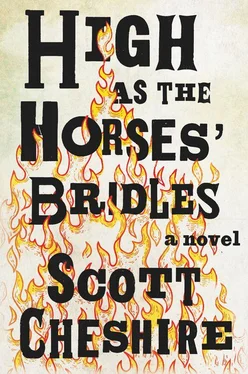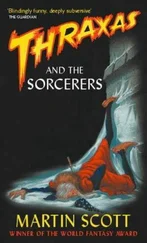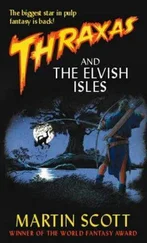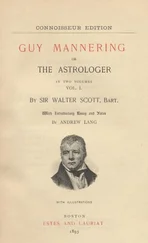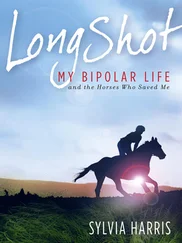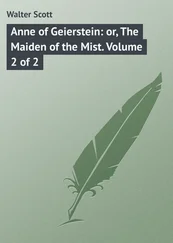I don’t think I cried, not for a long time, anyway. I went to the funeral. Mom and Dad supported this, it was too serious a thing not to. Mom even sent me to get flowers, and told me to say they were from them. I laid them there on a chair at the funeral home without telling anyone who they were from. I walked up to the front of the room, not really prepared for what was happening. I’d never seen a body before. Bhanu was there, looking fast asleep, and peaceful, and I was weirdly pleased just to see her there. I kissed her mother’s forehead, and saw after, in the restroom mirror, there was a red stain on my lips from her bindhi. I went home and kissed my mother’s cheek and I swore I could taste the dormant death cells of her skin.
* * *
Bhanu’s accident gave Dad a sense of hope, I think, about me. They had lost me to her, and the accident was a tragedy, yes, he said, “But this is an opportunity for the three of us to get back to how things used to be. We can regroup. As a family.” We were at the dinner table, always at the dinner table, one of the few times of day Mom would leave her room. I don’t remember what we were eating that night, probably takeout again.
Dad said, “I have an announcement to make.”
My stomach tightened. I tried not to show any physical response. Mom said nothing.
He could hardly contain himself anymore. He was fidgeting in his seat.
“Well?” I said.
He said, “Not yet.”
I looked at Mom. Her eyes didn’t say much of anything. I looked back to Dad. “What do you mean, ‘Not yet’?” He was practically bouncing in his seat.
“Wait,” he said. He stood up, and walked over to where I was sitting, put his hands on my shoulders. Rubbed, squeezed. “Give me a second,” he said.
He walked over to the window, looked out. Walked over to Mom, stood behind her. She stayed still. I’d been holding my fork in the air all this time. I set it down.
“What?” I said.
He started unraveling the cloth on Mom’s head. She tried to stop him, took hold of him by the wrists. But he kept unraveling. He took off the cloth. She sat there, bald-headed. He grabbed her head, hands over her ears, and began kissing her head, here, there, everywhere, kissing her. He threw the cloth against the wall, laughing, “Haha!” He walked back to my side of the table, and then on into the living room, mumbling, and saying things louder. We couldn’t understand what he was saying.
“We’ll do it here. Right here,” he kept saying. “Right here.” He walked back into the dining room and tried to sit, could hardly contain himself. He stood again, this time with a food carton in his hands. He ate from it, pacing back and forth, dining room to living room, in and out of the kitchen. Sometimes over to Mom, to kiss her head, or grab her head and kiss it. She stayed still. Her head cloth lay on the floor in a crumple. I watched it all as if I weren’t there, as if, if I stayed still enough, he wouldn’t see me. He paced, ate, and paced. Set the carton down. Picked it up again, pacing back to the table.
“We’ll do it here, do it here, do it here…” He was sweating.
At some point that evening I picked up Mom’s head cloth and gave it back to her. Dad’s pacing and mumbling had moved to other rooms. Upstairs. At one point, he stood in the bathroom beneath the stairs and scrubbed at his face, looking in the mirror, and calling out the numbers one through seven. Mom went to bed. I started cleaning up the dinner table just as Dad sat back down. He was saying, “Leave it, leave it, leave it…” He had a notebook, and started writing in very small script. It looked like he was making a list.
Dad had decided he was starting his own church, at home. He’d received a revelation.
He said, “We’ll invite everyone we knew from the Brothers in the Lord congregation.”
He was making a list of names.
“And the neighbors.” He asked me to get him a glass of water. I did. “And you’ll give the very first sermon.”
He probably assumed that if he could tell the old brothers and sisters from church that I was giving the sermon they’d simply have to attend. According to him, they had been eagerly awaiting my return. I don’t know where he got this information. The idea seemed silly to me, even then.
He looked up at me, sipping water, his face glowing. “You’ll do it?”
I didn’t answer. I think he took this for a yes. But it didn’t matter. Nobody came.
We sat there at the table next week, suit and tie. Mom in a dress. A stack of bagels. Cream cheese. He’d moved the table as far back to the wall and windows as he could, and set up a makeshift podium for me, a tall and slender chest of drawers he brought from his bedroom. He had called everybody, he said. Left messages. Told them it was “imperative” they attend.
We sat there for two hours. Silent. Until Dad suddenly left the room, the house. We heard the car start. Mom insisted she help me move back the furniture. We put the bagels in a paper bag.
Would I have spoken? I never thought about it, what I would do if anyone showed.
That night, at dinner, Dad informed us he’d received a brand-new revelation, a shower was no longer sufficient and I must swear to bathe myself, fully immerse my body underwater, at rise and fall, to keep the house and my mother’s body clean. For me, this was too much to ask. The request was just too intimate. For the first time in my life, death was suddenly a worthy adversary, something worth fighting against, not something to be washed, or massaged, or colored with fear or fantasy.
A year went by before I could leave and afford an apartment of my own. I had a job at a Radio Shack and I finally cried for my girlfriend. A few years passed before I gave my savings to a coworker who had been developing what seemed a good idea for a video game. We got lucky. And before long, I was living in the future. When did that happen, exactly? Life was about what comes, and this was a frightening time for me because you cannot ever really know what is coming, no matter what, not the hour or the day. I was suddenly hanging out there like a leaf about to fall. But I was getting more and more okay with the idea of falling; everything that ever made me afraid started sloughing off like scales. One by one. Then I started picking them off.
I went to work one day at Radio Shack suddenly filled with the feeling that I was no longer a Laudermilk, which was thrilling and scary as hell. I gave my notice and decided to make a longish bet on my future. I would take my cash and move to California, where computer electronics meant more money, the magazines said, and because it seemed so far away.
Finally, one Sunday (always a Sunday!), I went home to say goodbye. I found Mom sitting in the kitchen, at the table, and she was sipping Lipton tea with milk. Her hat on the table beside her. Her white head like a bright pearl doorknob. The blinds were louvered almost closed, the atmosphere of the room more like evening than the midday outside. She wore her blue slippers, her robe. I would be leaving New York in the morning.
She said, “Come over here.”
I put my hand on her shoulder, picked at the pilling of her robe. The tea was half finished, so I turned and took the pot from the stove and poured more water in her cup. I said, “I’ll be back soon to tell you all about it.”
She patted my hand. It was on her shoulder again.
“And we’ll talk on the phone,” I said. “It’s just a matter of making a living, and nothing else. You know that. This isn’t the place for what I’m planning. California is the place for what I’m doing.”
“You could just go to Florida, open a store. Not so far away. Or upstate,” she said. I tried to respond, but she stopped me, and said, “I shouldn’t say that. Don’t listen.”
Читать дальше
